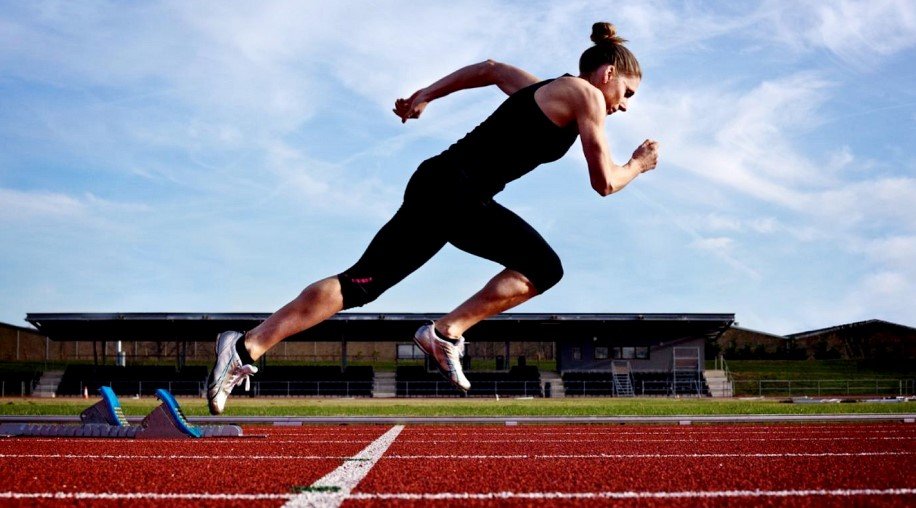Athletics is more than just a pursuit of speed or strength; it encompasses the dedication, strategy, and mental fortitude required to excel in various sports disciplines. To truly master athletics, one must embrace a multifaceted approach that includes physical training, skill development, nutrition, and mental preparation. This article delves into essential techniques for success in the world of athletics, offering insights that athletes at every level can apply in their training regimens.
Understanding Athletic Discipline
Athletics comprises a wide array of events categorized mostly as track and field, distance running, and various field events like jumping and throwing. Each discipline requires specific skill sets and training methodologies. For aspiring athletes, understanding the nuances of their chosen sport is crucial. For example, sprinters must cultivate explosive speed, while distance runners focus on endurance and pacing. By identifying their primary athletic discipline, athletes can tailor their workouts and training regimens to suit their unique needs.
Physical Conditioning: Building a Strong Foundation
Physical conditioning serves as the cornerstone of mastering athletics. Strength training, flexibility, and cardiovascular conditioning are all vital components of an athlete’s preparation. Implementing a balanced strength training program not only improves muscle strength but also enhances overall athletic performance and reduces injury risk. Incorporating exercises that target core strength, such as planks and medicine ball workouts, can provide athletes the stability and power needed for optimal performance.
Resistance Training
Incorporating resistance training into workouts is pivotal. Weightlifting can be tailored to enhance explosiveness and power by focusing on compound lifts, such as squats and deadlifts. This type of training helps to develop the major muscle groups, ensuring athletes have the strength necessary to tackle their event. Additionally, bodyweight exercises like push-ups, lunges, and pull-ups can provide functional strength, which translates directly into improved athletic performance.
Flexibility and Mobility
Flexibility is often an overlooked aspect of athletic training. Athletes should prioritize stretching and mobility routines to improve their range of motion and reduce the likelihood of injuries. Practices such as yoga or dynamic stretching can be synergised into a training regimen to enhance flexibility. For instance, incorporating routines that focus on hip and hamstring mobility can significantly benefit runners, helping them maintain proper form throughout their races.
Nutrition: Fueling Success
To master athletics, one must also understand the importance of nutrition as a means to optimize performance. Proper dietary choices fuel training, enhance recovery, and support overall health. Athletes should aim for a balanced diet rich in carbohydrates, proteins, fats, vitamins, and minerals. Carbohydrates serve as the primary energy source for high-intensity efforts, while proteins play a crucial role in muscle repair and recovery.
Meal Timing
Meal timing becomes critical, particularly around training sessions. Consuming a carbohydrate-rich snack or meal before workouts ensures that athletes have the energy needed to perform at their best. Post-workout, a combination of carbohydrates and protein is essential to replenish glycogen stores and support muscle recovery. Strategies such as planning meals around training schedules can significantly enhance athletic performance.
Hydration
Staying adequately hydrated is another vital factor in mastering athletics. Dehydration can severely impair physical performance, leading to fatigue, decreased strength, and impaired cognitive function. Athletes should develop a hydration plan that takes into account pre-training hydration, hydration during activities, and replenishing fluids post-exercise. Monitoring urine colour can also serve as a useful guide for assessing hydration status.
Mental Preparation: The Psychological Edge
An often underemphasized area in athletics is the psychological aspect of performance. Mental preparation can significantly influence an athlete’s ability to compete at peak levels. Visualization techniques, goal setting, and mindfulness practices can all contribute to enhanced focus and reduced anxiety.
Visualization Techniques
Visualisation allows athletes to mentally rehearse their performances, creating a strong psychological blueprint for success. By envisioning themselves executing their skills flawlessly, athletes can build confidence and reduce performance anxiety. Regular practice of this technique, alongside physical training, creates a harmonious balance between the mind and body.
Goal Setting
Establishing clear, attainable goals is another critical component of mental preparation. Goals should be SMART: Specific, Measurable, Achievable, Relevant, and Time-bound. By setting both short-term and long-term goals, athletes can maintain motivation and track progress, celebrating small victories along the way. A well-defined goal-setting plan helps athletes stay focused amid challenges, ultimately fostering a more successful athletic journey.
Recovery: The Key to Longevity
Recovery is an integral aspect of mastering athletics that cannot be overlooked. Proper recovery techniques help athletes rebuild, refresh, and prepare for subsequent training sessions or competitions. It includes sleep, active recovery, and techniques such as massage, foam rolling, and contrast baths.
Quality Sleep
Sleep is a crucial component of the recovery process. Multiple studies highlight its importance in athletic performance, cognitive function, and injury prevention. Athletes should aim for 7-9 hours of quality sleep each night, establishing a sleep routine that enhances the body’s ability to repair itself.
Active Recovery
Incorporating active recovery days into training schedules can enhance overall recovery. Low-intensity activities, such as walking, cycling, or swimming, allow muscles to recover while promoting mental relaxation. This strategy can prevent burnout and keep athletes engaged and motivated.
Practicing Discipline and Consistency
Ultimately, mastering athletics requires a commitment to discipline and consistency. Training schedules, nutrition plans, and mental strategies must be adhered to, even when motivation wanes. Building productive habits over time lays the foundation for sustained success, ensuring that athletes indeed master their craft.
Conclusion
Through dedicated physical conditioning, informed nutritional choices, mental preparation, and a commitment to recovery, athletes can position themselves for success. Mastering athletics is a continual journey fueled by passion, perseverance, and the relentless pursuit of excellence. With the right techniques in place, every athlete can unlock their full potential and achieve their dreams in the athletic arena. So, continue practicing and never give up on your goals – the journey to mastering athletics is a rewarding one. Keep pushing yourself and trust in the process, and you will see results both on and off the field. Good luck!
